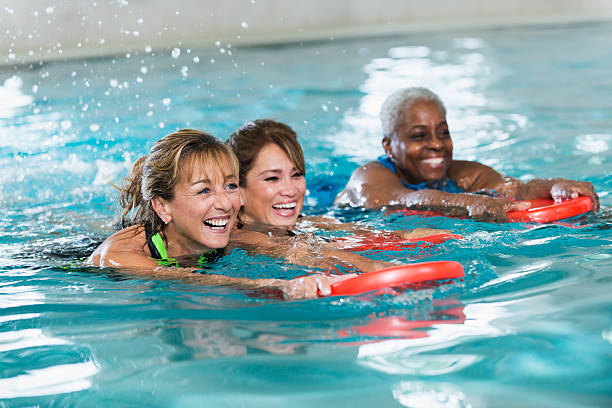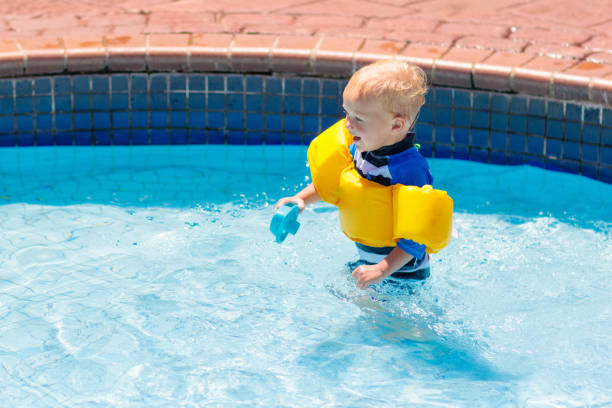Why Can’t I Float in Water?
This post contains affiliate links. I may earn a commission at no extra cost to you if you make a purchase. Note that I’m not a health or outdoor safety professional, so further research is advised. Your support keeps Outdoors A-Z running—thank you! Read the full disclosure.. Read the full disclosure here.
Why Can’t I Float in Water?
Have you ever wondered why some people effortlessly float on water while others struggle to stay afloat? It may seem perplexing, but there’s actually a scientific explanation behind it. In this article, we will explore the reasons why some individuals can’t float in water and delve into the factors that affect buoyancy. So, let’s dive in and uncover the secrets of floating!
Table of Contents
Introduction
Floating in water is a phenomenon that has fascinated humans for centuries. The ability to effortlessly stay buoyant on the surface seems almost magical. However, for those who find themselves sinking instead of floating, the experience can be frustrating and confusing. But fear not, as there are logical reasons why some individuals struggle with floating.
The Science of Floating
To understand why floating is not a universal experience, let’s first explore the science behind it. The principle that governs floating is known as Archimedes’ principle, named after the ancient Greek mathematician and physicist Archimedes.
Archimedes’ Principle
Archimedes’ principle states that an object submerged in a fluid experiences an upward buoyant force equal to the weight of the fluid it displaces. In simpler terms, when you immerse yourself in water, the water exerts an upward force on your body, counteracting the force of gravity and allowing you to float.
Density and Buoyancy
The density of an object plays a crucial role in determining whether it will float or sink. Density is defined as the mass of an object divided by its volume. If an object is denser than the fluid it is immersed in, it will sink. On the other hand, if it is less dense, it will float.
Water Displacement
Water displacement also affects buoyancy. When you enter the water, your body displaces a certain amount of water, which creates an upward force known as buoyancy. The greater the water displacement, the higher the buoyant force, and the easier it is to float.
Factors Affecting Buoyancy
While the principles of buoyancy remain constant, several factors can influence an individual’s ability to float in water. Let’s explore these factors in more detail.
Body Composition
One of the primary factors influencing buoyancy is body composition. People with a higher percentage of body fat tend to be more buoyant than those with a higher muscle-to-fat ratio. Fat is less dense than water, which increases overall buoyancy.
Lung Capacity
The amount of air in your lungs also affects buoyancy. By taking a deep breath, you increase your lung volume, adding extra buoyancy to your body. This is why taking a deep breath before floating can make it easier to stay afloat.
Water Salinity
The salinity of the water you are in can impact buoyancy. Saltwater is denser than freshwater, providing increased buoyancy. Therefore, you may find it easier to float in the ocean compared to a swimming pool.
Water Temperature
Water temperature can also influence your ability to float. Cold water tends to be denser than warm water, affecting overall buoyancy. In colder temperatures, it may be slightly more challenging to float due to the increased water density.
Lack of Natural Buoyancy
While some individuals may naturally struggle with floating, there are other reasons why it might be challenging to stay afloat. Let’s explore some of these factors.
Dense Materials
Wearing heavy clothing or accessories can make it harder to float. Dense materials, such as jeans or thick jackets, increase overall body density, making it more difficult to achieve buoyancy.
Body Positioning
The position of your body in the water can also affect your ability to float. If your body is tense or positioned incorrectly, it can disrupt the balance of forces acting on you, making it harder to stay afloat. Maintaining a relaxed and horizontal posture can greatly improve your chances of floating.
Buoyancy Aids
Using buoyancy aids, such as floatation devices, can significantly assist individuals who struggle with floating. These aids provide additional buoyant force, making it easier to stay on the water’s surface. Floatation devices can be particularly beneficial for beginners or those lacking confidence in the water.
Psychological Factors
Floating is not solely determined by physical factors. Psychological factors can also contribute to an individual’s ability to float. Let’s explore some of these factors.
Fear and Anxiety
Fear and anxiety can cause tension in the body, making it harder to relax and achieve buoyancy. Individuals who feel anxious or fearful in water may find it more challenging to float. Overcoming these psychological barriers through gradual exposure and relaxation techniques can help improve floating ability.
Tension and Muscle Control
Excessive tension in the muscles can interfere with floating. When muscles are overly contracted, it becomes difficult to achieve the relaxed state necessary for buoyancy. Practicing relaxation techniques and focusing on muscle control can aid in achieving a more effortless float.
Relaxation Techniques
Engaging in relaxation techniques, such as deep breathing, meditation, or visualization, can help calm the mind and body. By reducing stress and tension, you increase your chances of achieving a relaxed state conducive to floating.
Medical Conditions and Physical Limitations
Certain medical conditions and physical limitations can affect an individual’s ability to float. Let’s explore some examples.
Bone Density
Individuals with higher bone density, such as older adults or individuals with osteoporosis, may find it more challenging to float. Increased bone density makes the body denser, reducing overall buoyancy.
Body Fat Percentage
As mentioned earlier, body fat percentage plays a role in buoyancy. Individuals with lower body fat percentages may find it more difficult to float due to decreased overall buoyant force.
Injuries and Disabilities
Physical injuries or disabilities can also affect an individual’s ability to float. Limited mobility or impaired muscle control may impact an individual’s floating capabilities. In such cases, adaptive techniques or assistance from trained professionals can help individuals experience the joy of floating.
Myth Debunking: Can Everyone Float?
There is a common misconception that everyone can naturally float in water. While some individuals have an innate ability to float more effortlessly, not everyone possesses this capability. Factors such as body composition, technique, and psychological factors can influence an individual’s floating ability. However, with practice, proper technique, and the right mindset, most individuals can improve their floating skills.
Conclusion
Floating in water can be a delightful and relaxing experience for many people. However, the ability to float varies among individuals due to various factors, including body composition, technique, psychological factors, and physical limitations. Understanding these factors can help individuals adapt and find enjoyment in the water, whether it involves learning relaxation techniques, using buoyancy aids, or embracing individual differences. So, next time you find yourself struggling to float, remember that with a bit of practice and understanding, you can enhance your floating experience and embrace the water’s buoyant embrace.
FAQs
Is floating the same as swimming?
No, floating and swimming are different. Floating refers to staying buoyant on the water’s surface without active propulsion, while swimming involves intentional movement through the water using various strokes and techniques.
Can learning to swim help with floating?
Yes, learning to swim can improve your overall comfort and buoyancy in the water. Swimming lessons can teach proper body positioning, breathing techniques, and relaxation methods that can enhance your floating abilities.
Can you float better in saltwater than in freshwater?
Yes, saltwater is denser than freshwater, providing increased buoyancy. Therefore, you may find it easier to float in saltwater compared to freshwater.
Are there any benefits to floating?
Yes, floating offers several benefits, both physical and mental. It can promote relaxation, reduce stress and anxiety, improve body awareness, and provide relief for joint and muscle pain.
Is it possible to learn how to float if you can’t naturally?
Absolutely! With practice, proper technique, and relaxation, most individuals can improve their floating abilities. Floating is a skill that can be developed, allowing anyone to enjoy the unique sensation of effortlessly floating in water.















